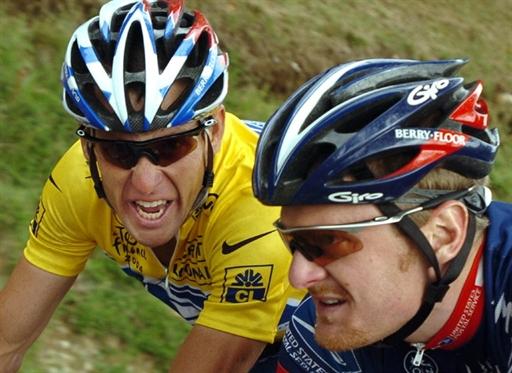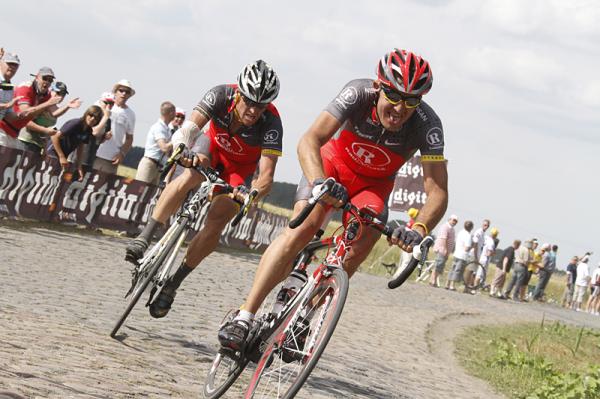Italian police confirm focus on drug trafficking in US Postal investigation
Benedetto Roberti confirms international cooperation


Italian public prosecutor Benedetto Roberti has confirmed that he travelled to Interpol headquarters in Lyon this week to meet with US federal officers who are leading the investigation into alleged doping at the former US Postal Service team.
Roberti told the Associated Press that the meeting was mostly “an exchange of information regarding the international traffic of banned substances,” but indicated that the Americans are focused on seven-time Tour de France winner Lance Armstrong.
The Padua-based investigator has been behind most of the major doping investigations in Italian cycling in recent years. He ordered the search of Yaroslav Popovych’s home in Tuscany last week and revealed that the data on his personal laptop computer and blackberry is now being analysed.
Popovych is a loyal teammate of Armstrong and was subpoenaed to testify in front of a grand jury in Los Angeles on November 11. Both Armstrong and Popovych have always denied doping but the investigation has become international following a reported meeting at Interpol headquarters in Lyon in late July. French, Italian and Spanish police were all reported to have met with the American investigators to combine their efforts.
International co-operation
AP reveals that Belgian police are also involved and that the Americans were represented by U.S. Food and Drug Administration agent Jeff Novitzky, U.S. Anti-Doping Agency CEO Travis Tygart, U.S. federal prosecutor Doug Miller and FBI special agent Olivier Faraole.
“We need to exchange information, because this phenomenon can’t be beaten alone,” Roberti said. “Everyone needs to contribute. This battle can’t be won in the media.”
Get The Leadout Newsletter
The latest race content, interviews, features, reviews and expert buying guides, direct to your inbox!
“Italy is one of the few countries doing anything. In Spain, look at Contador and how the sports authorities are defending him. France and Germany are also doing their part, and now the United States, too.”
Roberti said he was struck by how seriously the US officials are taking their investigation.
“We realized that we have reciprocal interest in this fight, and hopefully time will confirm that,” he said.
He revealed that numerous professional cyclists he has questioned claimed that athletes who don’t dope have an output of 40 per cent below those who do.
“That’s what they say. Unfortunately that’s the system,” Roberti said. “The sport relies on sponsors and sponsors don’t pay the teams unless they win and to win they need to use banned substances.”
“The races are too tough. They need to reduce the kilometres. It’s impossible to think that they can complete these races as they are without using banned substances. If they reduce the lengths I know people will say they’ll still dope, but at least they would have less reason to.”
Roberti backed recent calls from the World Anti-Doping Agency to hand out four-year bans but suggested doping was deeply rooted in sport.
“The problems start with the doctors, the team directors and the trainers. The athletes are the last rung on the ladder. I’ve seen cases where kids under 18 are given growth hormones, EPO, women’s hormones and just about everything else.”

Stephen is one of the most experienced member of the Cyclingnews team, having reported on professional cycling since 1994. He has been Head of News at Cyclingnews since 2022, before which he held the position of European editor since 2012 and previously worked for Reuters, Shift Active Media, and CyclingWeekly, among other publications.